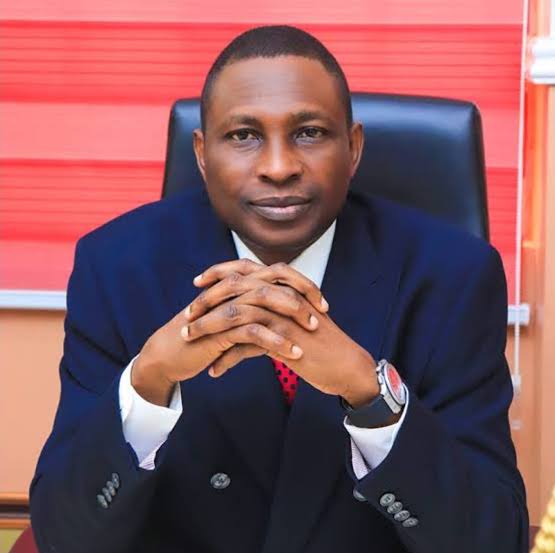The Executive Chairman of the Economic and Financial Crimes Commission (EFCC), Ola Olukoyede, has revealed that Nigeria has been losing over N40 billion annually to employment fraud since 2007.
This was disclosed during a meeting with the Nigerian Employers’ Consultative Association (NECA) at the EFCC headquarters on Friday.
Olukoyede shared insights from his personal research into employment fraud, which he conducted before joining the EFCC.
He lamented the widespread nature of the fraud, which not only sees employers defrauding their employees but also instances where employees themselves engage in fraudulent activities.
“In 2007, before I joined the EFCC, I conducted research on employment fraud, focusing on how employers defraud their staff and how employees also defraud their employers.
I discovered that Nigeria was losing over N40 billion every year to employment fraud,” Olukoyede explained.
He further elaborated on the Commission’s efforts in addressing fraudulent salary payments, particularly within government systems.
Upon assuming the role of Chief of Staff at the EFCC, Olukoyede highlighted that investigations into the Integrated Personnel and Payroll Information System (IPPIS) uncovered numerous instances of non-existent employees receiving government salaries.
“We found that many individuals were receiving salaries without being employed by the government. Our intervention helped save billions of naira,” he stated.
However, Olukoyede emphasized that investigations into such fraudulent activities are ongoing, as fraudsters continue to evolve new tactics.
“Our investigation is ongoing because criminals keep developing new methods, and we must continue innovating to counter these tactics,” Olukoyede added.
The EFCC Chairman underscored the importance of vigilance and preventive measures in the fight against financial crimes, noting that fraudsters are constantly adapting.
He reiterated that law enforcement agencies must remain proactive with new strategies to combat corruption and financial crimes.
Olukoyede further described corruption and financial crimes as the greatest hindrances to Nigeria’s economic growth and development.
“You don’t need a soothsayer or a prophet to tell anyone in Nigeria that our major problems are financial crimes and corruption.
These issues are a significant obstacle to our economic progress,” he said.
In his address, Adewale Oyerinde, the CEO of NECA, expressed the need for enhanced collaboration between the private sector and the EFCC, especially given the magnitude of financial losses experienced in recent times.
Oyerinde noted that many private sector organizations have also fallen victim to various fraudulent activities.
“We are here to seek collaboration with the EFCC in whatever context and partnership in tackling the issue.
Specifically, we are looking at joint workshops on the role of the private sector in reducing or eradicating the menace of money laundering, cybercrime, and identity thefts,” Oyerinde said.
The meeting highlighted the urgent need for a unified approach between the private sector and the EFCC to address the growing threat of financial crimes in Nigeria.
The collaboration is expected to help stem the tide of corruption and secure the country’s economic future.
Do you want to share a story with us? Do you want to advertise with us? Do you need publicity for a product, service, or event? Contact us on WhatsApp +2348183319097 Email: platformtimes@gmail.com
We are committed to impactful investigative journalism for human interest and social justice. Your donation will help us tell more stories. Kindly donate any amount HERE




